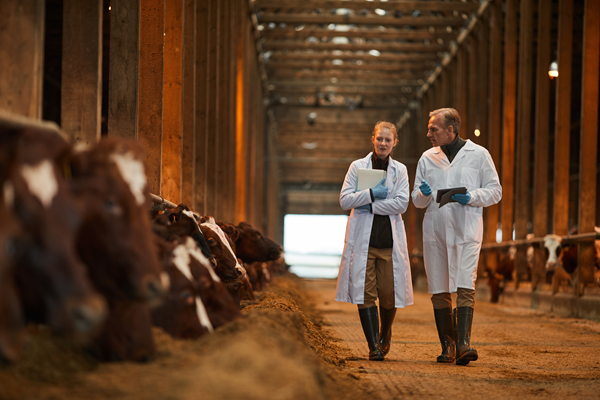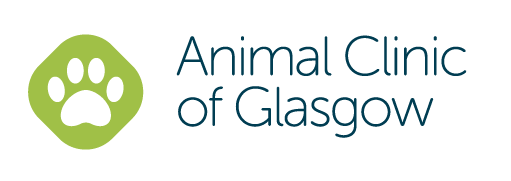
Veterinarians are often seen as animal doctors, but did you know that they are vital for keeping humans healthy too? Veterinarians help ensure the food on our plate is safe to eat. June 7 is World Food Safety Day – a perfect time to highlight the often-overlooked importance of veterinarians in our daily nutrition.
Beyond the Clinic: Keeping Food Safe
Without veterinarians, food would not be as safe as it is today. Veterinarians working for government agencies (USDA Food Safety and Inspection Service in the US and the Canadian Food Inspection Agency in Canada) are needed to ensure meat products are safe to eat. These veterinarians promote humane animal handling, inspect animals for disease, and oversee plans to prevent infectious disease.
Some of the more common infections that humans can get from unsafe meat products include:
- Salmonella
- Sources include raw or undercooked poultry, beef, and pork
- Symptoms include diarrhea, fever, and vomiting
- Campylobacter
- Sources include undercooked poultry, unpasteurized (raw) milk, and contaminated water
- Symptoms include diarrhea, fever, and abdominal cramping
- E. coli
- Sources include undercooked ground beef and contaminated produce
- Symptoms include severe stomach cramps, diarrhea (usually bloody), and vomiting
- Can cause potentially fatal kidney condition
- Listeria
- Sources include processed meats, unpasteurized (raw) dairy, and deli meats
- Symptoms include fever, muscle pain, nausea, and diarrhea
- Trichinella
- Sources include undercooked pork and wild game
- Symptoms include vomiting and diarrhea, fever, and muscle pain
Veterinary Drugs: Responsible Prescriptions for Ongoing Food Safety
If medications aren’t used responsibly, they can end up in our food through meat, milk, eggs, or other dairy products. Veterinarians respect this responsibility and only use medications when appropriate – not only for the health and safety of the animal, but also for our food supply.
Education
Veterinarians provide education on safe food handling practices. This role includes guiding hygiene standards in meat processing facilities and recommending safe food storage and preparation to minimize the risk of foodborne illnesses.
Challenges
Despite veterinarians’ critical role in food safety, they are faced with many challenges, including workforce shortages, emerging diseases, and misinformation. These issues must be addressed to improve, or even maintain, the safety of our food. Investment in veterinary education and public health is critical to meet the ongoing challenges.
Your Role
You are also a vital part of the food safety chain. Ensure any meat is cooked to the appropriate temperature needed to kill any infectious diseases, practice good kitchen hygiene, and actively stay informed about food recalls.
Also – remember what veterinarians contribute to human health this World Food Safety Day and support their efforts to ensure food safety for everyone.
